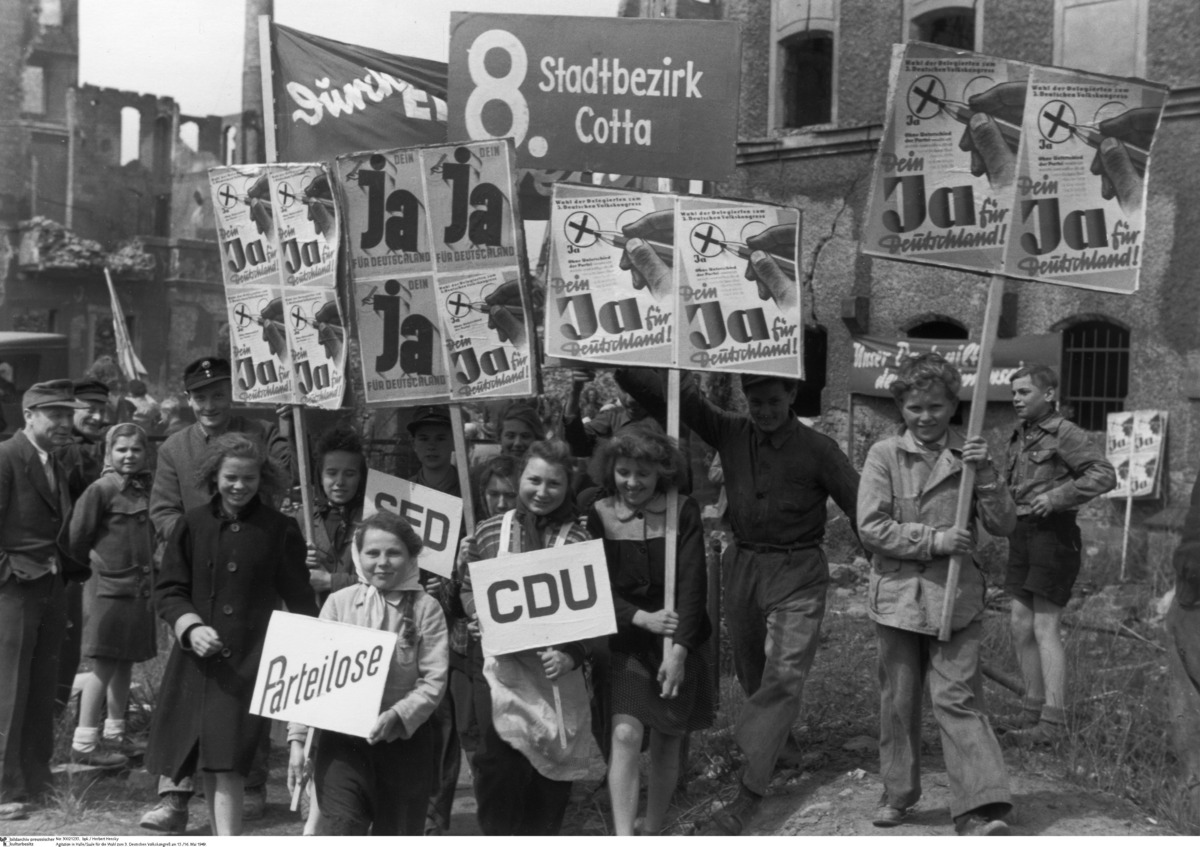Abstract
In March 1949, the “German People’s Council” reacted to the pending
adoption of the Basic Law in the Trizone by declaring a “national
emergency” and convening a Third People’s Congress to approve the
constitution. This time, the Congress was supposed to be legitimized by
elections, which were to be held in the Soviet zone and East Berlin on
May 15-16, 1949. The elections, however, took place according to the
so-called unified-list principle: candidates were nominated by the
individual parties and mass organizations, and the distribution of seats
among these groups was determined in advance of the election. The system
guaranteed the dominance of the SED, a forced consolidation of the SPD
and KPD, which was allotted 25% of the seats. The CDU and Liberal
Democratic Party of German were given 15% each; the Free German Trade
Union Federation was given 10%; the Democratic Farmers' Party of Germany
and the National Democratic Party of Germany were allotted 7.5% each;
the Free German Youth Movement and the League of Culture received 5%
each; and the rest of the seats went to the other parties and mass
organizations. The elections were held on the basis of a “yes” or “no”
for the lists, with the ballot reading, “I am for German unity and a
just peace treaty. Therefore, I vote for the following list of
candidates for the Third German People’s Congress.” According to
official election results, the unified list received 66.1% of the vote;
the validity of this result was contested by many, however. The Third
German People’s Congress eventually took place on May 29-30, 1949. It
elected the Second German People’s Council, which constituted itself as
the Provisional People’s Parliament
[Provisorische Volkskammer] and
promulgated the GDR constitution on October 7, 1949. The photograph
below shows citizens of Halle/Salle – mostly children – rallying during
the elections to the “Third People’s Congress” in front of a backdrop of
war-damaged buildings. Most of their signs read: "Your Yes Vote for
Germany!"
